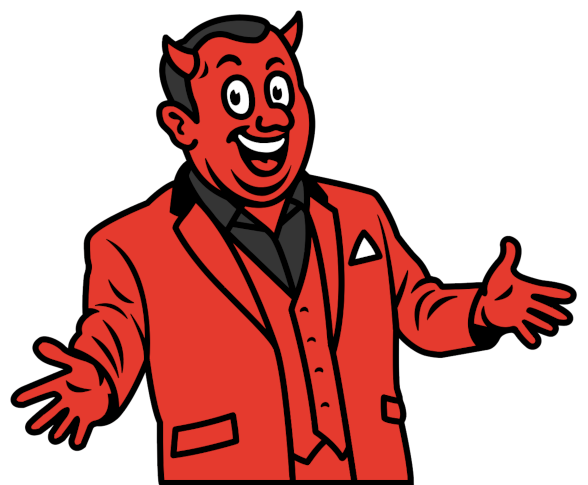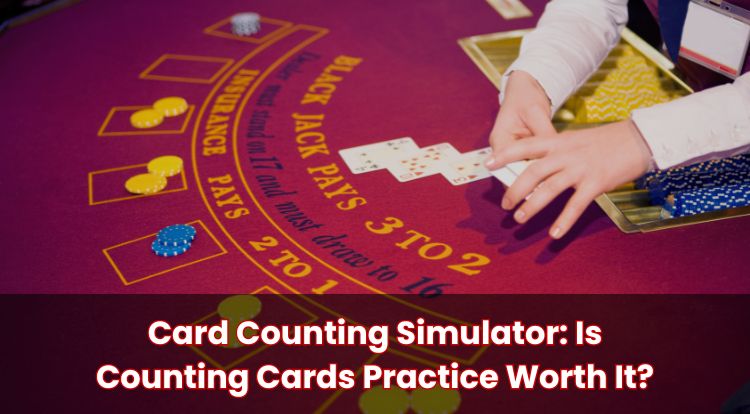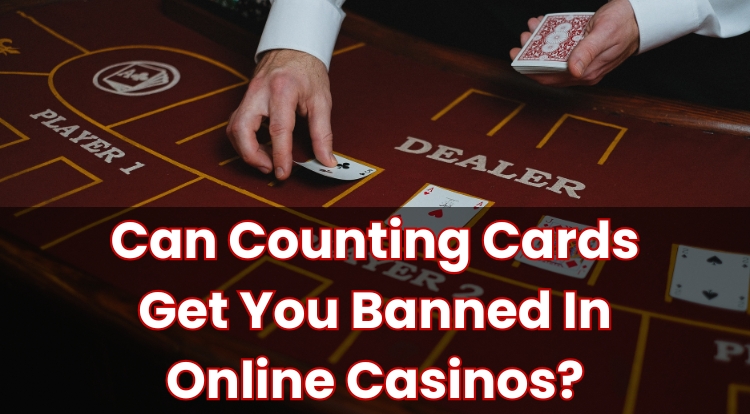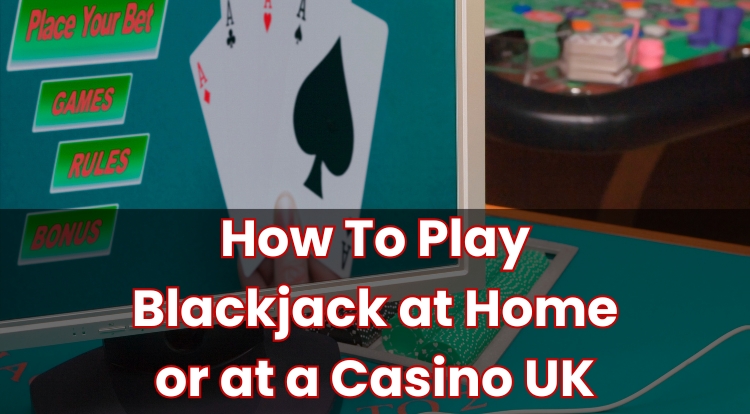Single Deck Blackjack: Rules, How To Play & Card Counting
This blog explains how single deck blackjack works, how to play it, and how it compares to other versions of blackjack. If you’re new to the game, you’ll find clear definitions of key terms, straightforward examples, and helpful insights.
This version of blackjack uses just one deck of 52 cards, which affects the way the game plays and the decisions players may consider.
You’ll also learn about things like basic strategy, the role of probability, and why some people talk about card counting. Whether you’re curious about the rules, or looking to understand how the game differs from others, this guide aims to break it down into simple, easy-to-follow steps.
Why Some Players Prefer A Single Deck
Single deck blackjack uses just one standard 52-card pack, which some players find easier to follow compared to versions that use multiple decks. With fewer cards in play, it’s often clearer to see which cards have already appeared, and how that might influence decisions in the hand. For example, if many low-value cards have already been dealt, a player might feel more confident that higher cards may remain in the deck.
Another reason some people choose single deck games is that, when played under standard rules—such as blackjack paying 3:2 and the dealer standing on a soft 17—the built-in casino advantage, known as the house edge, can be lower.
If players follow basic strategy consistently (the statistically best set of decisions), the house edge has the potential to drop to around 0.5%. This means that over a long period, the casino might expect to keep about 50p for every £100 wagered. However, individual outcomes will vary, as chance is a key part of every hand.
It’s important to note that not all single deck games offer the same conditions. Some may pay only 6:5 for a blackjack hand, returning £12 instead of £15 on a £10 bet, which increases the house edge.
Other rule variations—such as whether the dealer draws on a soft 17 or restrictions on doubling after a split—also affect how favourable the game may be for the player. Because of this, checking the game’s rules or paytable before placing a bet can help you understand what you might expect.
Key Rules That Set One-Deck Blackjack Apart
While single deck blackjack follows the same overall structure as other forms of blackjack, the use of one deck creates small, but important differences in how each hand plays out.
Here are some of the common rule aspects to be aware of:
- Deck size: One single 52-card deck is used. This makes every card dealt more significant in terms of what remains in the game.
- Blackjack payout: Some games pay 3:2, while others may pay 6:5. A lower possible payout increases the advantage to the casino.
- Dealer’s hand: At some tables, the dealer is required to draw another card when holding a soft 17. This slightly benefits the casino by increasing their chance of reaching potentially stronger hands.
- Doubling and splitting: Some versions allow you to double down only on certain totals (like 9, 10 or 11) and may restrict doubling after splitting a pair.
- Dealing method: In land-based casinos, cards may be dealt directly from the single deck without setting any aside. In online versions, a digital shuffle often occurs after each hand, resetting the deck completely.
Each of these factors can affect how the game plays and what strategy might be most effective in that situation. However, as blackjack involves an element of chance, any winnings can never be guaranteed.
Does Strategy Actually Change In Single Deck Games?
Yes, it can. The basic approach known as “basic strategy” remains the same in principle—making decisions based on the mathematical likelihood of each outcome—but some specific plays may differ, depending on how many decks are in use.
With only 52 cards in the game, it becomes slightly easier to estimate which types of cards might be left. For example, if you’ve already seen many small cards come out, there might be a greater chance the next card could be a 10 or an ace. That can influence whether it might be worth standing or doubling down.
Basic strategy charts made for single deck blackjack are built around these smaller variations in probability. Using a chart designed specifically for this version may help reduce the house edge as much as possible. However, not following a solid strategy can increase the house edge—often to around 2% or more—depending on how frequently mistakes are made.
Blackjack remains a game of chance, and no method guarantees a winning outcome. Even a statistically sound decision can still lead to a loss, as each hand is random.
How Fewer Cards Affect Your Decisions
Because single deck blackjack uses just 52 cards, each card dealt has a noticeable effect on what remains in the deck. This shifts the probabilities more quickly than in games with multiple decks.
For instance, if several low-value cards (like 2s through 6s) appear early on, the remaining deck might now include more high-value cards (10s, face cards and aces). This could influence a decision, such as whether to double down, knowing that the chance of drawing a 10-point card may have slightly increased.
This doesn’t mean you can predict what card will come next, but the shifting balance of cards can change the likelihood of certain outcomes. That’s why strategy charts for single deck games are different from those made for multi-deck versions—they take into account how these probabilities can shift more quickly.
You can use these insights to help inform your decisions, but outcomes will still vary from one hand to the next.
Counting Cards In Single Deck Blackjack: Is It Possible?
Card counting is a technique where players try to keep a rough count of which types of cards have been played, especially high versus low cards. With a single deck, the impact of each card is more noticeable, so in theory, counting may be more effective compared to multi-deck games.
For example, if you’ve noticed several 2s, 3s and 4s have already been dealt, it could suggest that more 10s and aces are left in the deck. Some players use this information to decide when to place higher or lower bets.
However, many UK casinos and online platforms use measures to prevent this. In most online games, digital card generators shuffle the deck after every round, making counting ineffective. Even in physical settings, automatic shufflers are often used.
It’s also worth noting that while card counting isn’t illegal in the UK, casinos are allowed to refuse service or restrict play if they believe someone is using the method.
Card counting does not guarantee a profit. It simply attempts to adjust decision-making based on estimates of remaining cards. Because outcomes are still random, even a good count cannot predict what card will appear next.
House Edge In Single Deck Blackjack Explained
The house edge is the mathematical advantage that the casino holds over the player, usually shown as a percentage.
In single deck blackjack with favourable rules—such as blackjack paying 3:2 and the dealer standing on soft 17—the house edge can be as low as 0.5% if optimal basic strategy is followed precisely.
When players make errors—like hitting when it may be better to stand, or splitting incorrectly—the house edge can increase. Regular mistakes can potentially raise it to 2% or higher, which would mean £2 for every £100 bet, on average, over time.
Different rules can also affect the house edge:
- If the dealer hits on soft 17, the house edge increases.
- A 6:5 payout for blackjack significantly boosts the casino’s advantage.
- More decks mean slightly higher house edges.
Each blackjack game can vary, so it can help to review the rules and paytable before playing.
Is One Deck Easier To Beat Than Multideck Blackjack?
Some players feel that single deck blackjack is easier to follow. With only one deck, fewer cards are in circulation, which means the balance of the deck can change more quickly. This can influence decisions when applying strategy.
When rules are favourable, single deck games may offer a lower house edge compared to multi-deck versions. However, if rules are adjusted, like a 6:5 payout or restrictions on doubling, the house edge can rise above that of some multi-deck games.
Card counting is sometimes assumed to be more effective in single deck games, but as explained earlier, shuffling practices often make it ineffective in practice.
No version of blackjack is objectively better or worse—it depends on the game rules, your playing style, and how closely you follow strategy. What works for one person may not suit another.
Should You Play Single Deck Instead Of Multideck?
Whether you choose single deck or multideck blackjack comes down to what you’re most comfortable with. Some players prefer single deck games for their simplicity, while others may enjoy the variety and additional features offered in multi-deck versions.
Single deck games may offer slightly better odds if the rules are favourable, but they’re less common in UK casinos. Multi-deck versions are more widely available and often include side bets or larger tables.
Whichever type you decide to try, it can be useful to review the game rules and paytable before placing any bets. Knowing the potential payout structure and what actions are allowed—like doubling or splitting—can help you make more informed choices.
Play Blackjack Online For Real Money
Discover a selection of blackjack games, as well as table games and slots, at 666Casino—a site registered and regulated by the UK Gambling Commission for your peace of mind. Try classic single deck blackjack, explore other variations, or sample different types of casino play.
Log in or join us online to access the full collection and see which version fits your playing style. Our platform is designed to help you browse and play safely and at your own pace.
As with all blackjack games, outcomes cannot be predicted. Please remember to play within your personal limits and seek support from GambleAware or similar organisations if you feel it is needed.
*All values (Bet Levels, Maximum Wins etc.) mentioned in relation to these games are subject to change at any time. Game features mentioned may not be available in some jurisdictions.
**The information provided in this blog is intended for educational purposes and should not be construed as betting advice or a guarantee of success. Always gamble responsibly.





